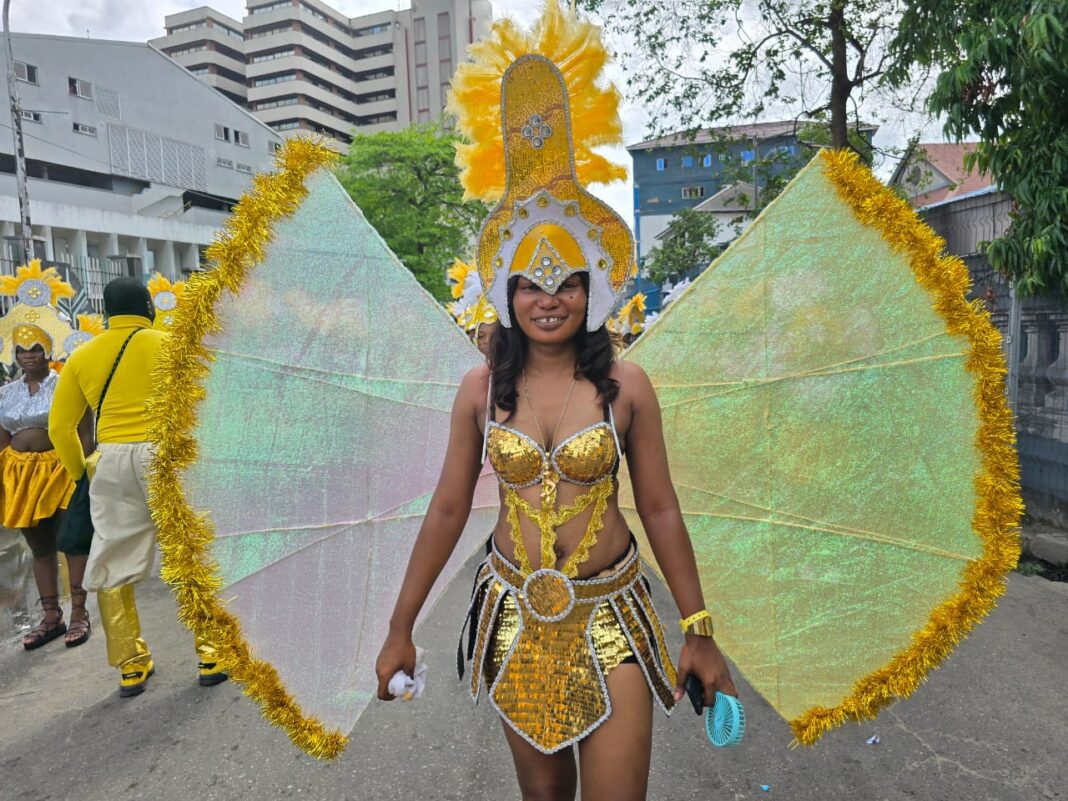Lagos Fanti Carnival Reawakens a Sleeping Heritage
By HeadlineNews.News – April 2025
Introduction: A Cultural Renaissance in Lagos
After more than a decade in silence, the Lagos Fanti Carnival roared back to life during the 2025 Easter season, drenching Lagos Island in a vibrant storm of colour, rhythm, history, and pride. For many, it was more than a festival—it was the resurrection of cultural memory, a symbolic homecoming of a tradition that had once defined the heartbeat of Lagos.
The return was spearheaded by Honourable Commissioner for Tourism, Arts, and Culture, Mrs. Toke Benson-Awoyinka, whose passionate invitation to Lagosians and the international community signaled not just the revival of an event but a reclamation of Lagos’ cultural sovereignty.
“You must not miss this year’s Carnival,” she declared—a call that carried both urgency and deep cultural significance.

Historical Origins: From Bahia to Broad Street
The Fanti Carnival is one of Nigeria’s oldest festivals with global origins. It traces its roots to the 19th-century Afro-Brazilian returnees, known locally as the Aguda people, who returned to Lagos and other parts of West Africa after being freed from slavery in Brazil, Cuba, and the Caribbean.
They brought with them samba music, elaborate costumes, architectural sophistication, Catholic processions, and the concept of street carnivals as expressions of freedom, resistance, and cultural fusion. These returnees settled primarily in Lagos Island, especially in quarters such as Okepopo, Campos, and Lafiaji—the same neighborhoods that brought the 2025 Fanti Carnival back to life.
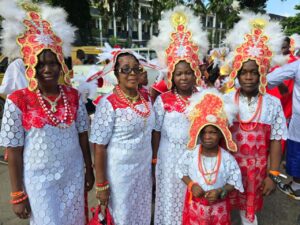
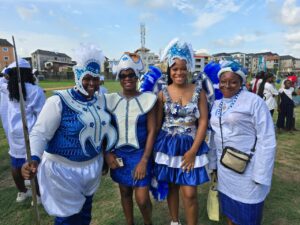
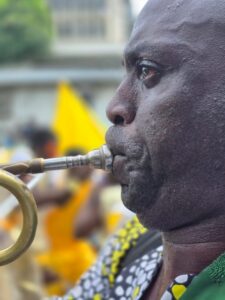
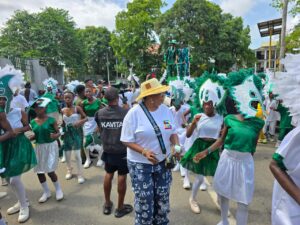
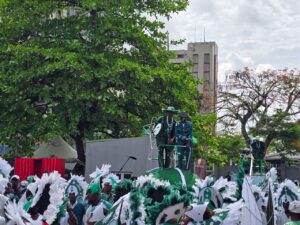
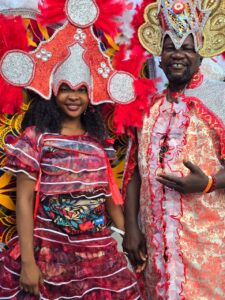
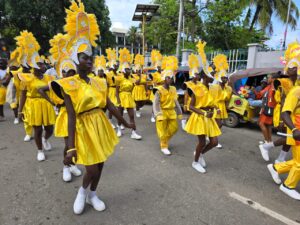
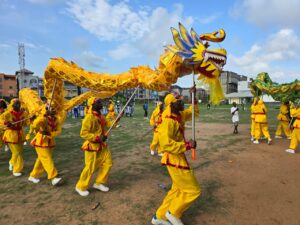
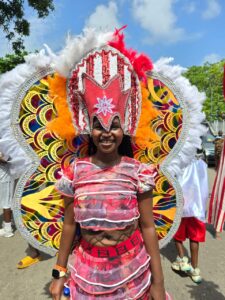
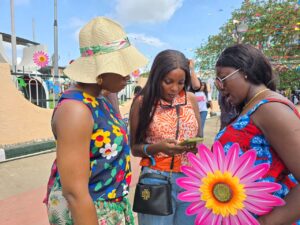
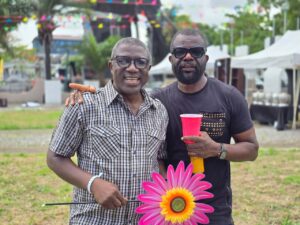

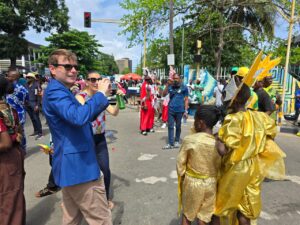
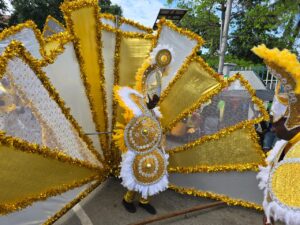
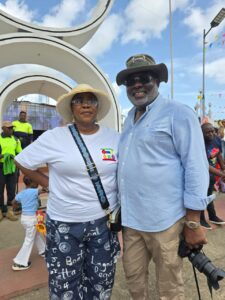
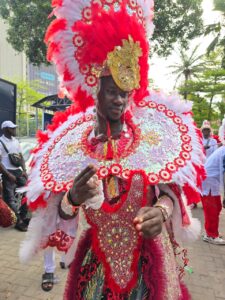
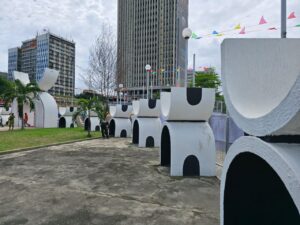
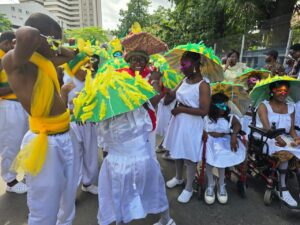
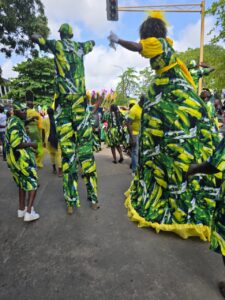
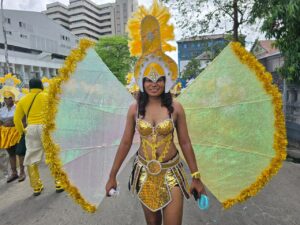
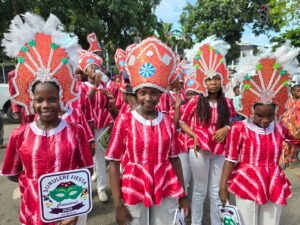
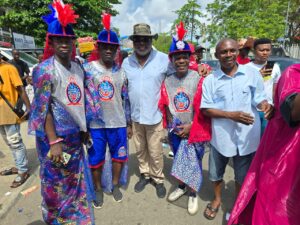
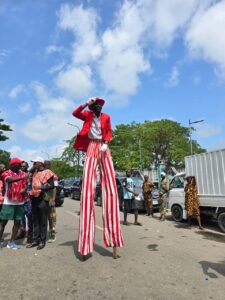
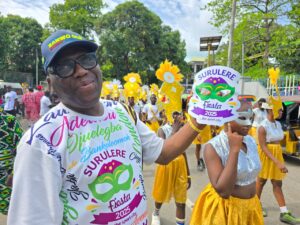
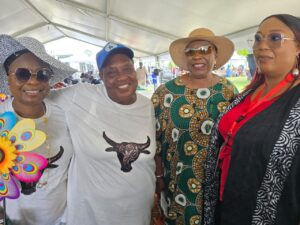
Yet even beyond these 1800s influences, members of the Eko Woro Association reminded participants this year that Lagosians had held masquerade-style festivals long before the Fanti name emerged. Traditional Yoruba drums—gangan, iya ilu, kanrangu, omele—were already summoning ancestors and communities into rhythm, song, and ceremony as far back as the 18th century.

Why the Carnival Disappeared
For over a decade, the Fanti Carnival was abandoned, largely due to lack of visionary leadership within the Ministry of Tourism and the appointment of commissioners who were not indigenous to Lagos and had no intimate knowledge of its deep-rooted traditions.
Instead of elevating Lagos’ cultural capital, many of these administrators prioritized generic events over heritage—forgetting that cultural tourism is the bedrock of economic identity in nations with strong national pride.

The 2025 Revival: A Masterpiece of Soft Power
This year’s Carnival was not merely a spectacle. It was a showcase of Lagosian ingenuity, unity, and identity. Over ten floats from districts such as Lafiaji, Okepopo, Okoo Faji, Campos, Epetedo, and Epetedo United displayed their creativity through dance, costume, live music, and oral storytelling, parading through historic streets under the sweltering sun.
One of the major highlights was the appearance of Hon. Fouad Oki, whose leadership of the Surulere Fiesta inspired many of the carnival’s strategic and logistical structures. His presence signaled that this was not just nostalgia—it was a strategic return to cultural diplomacy.
Another significant moment came with the Chinese Dragon Dance, reflecting Lagos’ global identity as a melting pot of culture and commerce. Eko, once again, proved it is not just the Centre of Excellence—it is the Centre of Expression.

Culture as Economy: Lessons from Brazil, Trinidad, and Spain
Countries like Brazil generate over $1 billion USD annually from the Rio Carnival alone, while Trinidad & Tobago boosts its economy each year through thousands of visitors attending its Carnival, rooted in similar Afro-Caribbean traditions. In Spain, the Seville Feria and Pamplona’s San Fermín Festival are protected as national heritage events, drawing tourists from across the globe.
Yet in Nigeria, such potential is barely tapped.
“We are sitting on a cultural goldmine,” says Dr. Amiida Fraser, MFR, governance consultant. “The Fanti Carnival should be part of Lagos’ cultural export strategy. We can brand festivals just as we brand oil or film. This is economy in costume.”

The Cultural and National Significance
Tourism: Events like the Fanti Carnival have the power to attract diaspora Nigerians and foreigners looking for authentic African experiences.
Education: The Carnival exposes younger generations to Lagos’ colonial and precolonial histories.
Unity: Every tribe, faith, and class came together on Lagos Island this Easter—not as spectators but as participants in a shared story.
Even King’s College and the Cenotaph Monument—two of Lagos’ most symbolic landmarks—were integrated into the route, blending education, military heritage, and national pride into the celebration.

Conclusion: To Forget is to Lose Identity
The Fanti Carnival is more than feathers, floats, or folklore. It is proof that a people who remember who they are cannot be erased. As Lagos continues to evolve as a megacity and regional leader, it must anchor itself in its cultural roots.
Heritage is not a luxury. It is a necessity.
And the Lagos Fanti Carnival, in all its resurrected glory, is a masterclass in how culture can heal, build, and empower.
“To gift someone Lagos is to gift them history, beauty, struggle, survival, and joy—all wrapped in fabric, rhythm, and colour.”
— Carnival Observer, 2025
Headlinenews.news Special Report.

“The Return of Colours: Lagos Fanti Carnival Roars Back to Life”
“Lagos Reclaims Its Cultural Soul: The Revival of the Fanti Carnival” – Tourist.
“From Silence to Samba: The Resurrection of Lagos’ Fanti Carnival” – Tourist
“Eko in Full Colour: How the Fanti Carnival Reawakened a City’s spirit. Former Senator.
“Fanti Is Back: Lagos Rediscovers Its Festival of Identity” – Former Governor of Lagos.
“Cultural Goldmine: Why Lagos Must Never Let the Fanti Carnival Die Again” – The National Patriots.
Comments from readers of the article published by Headlinenews.news.
For comments, email : editor.headlinenews@gmail.com


